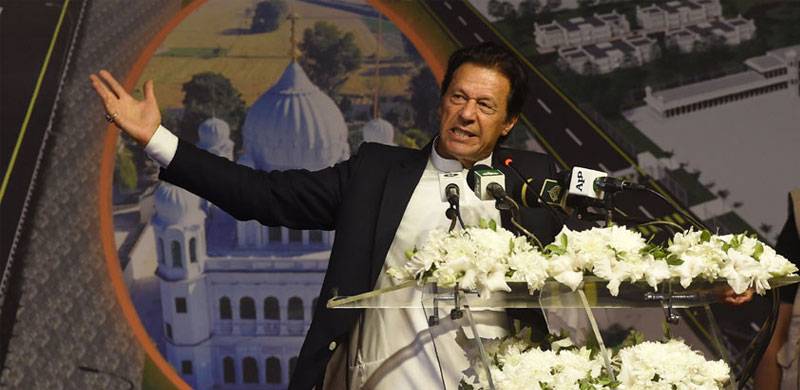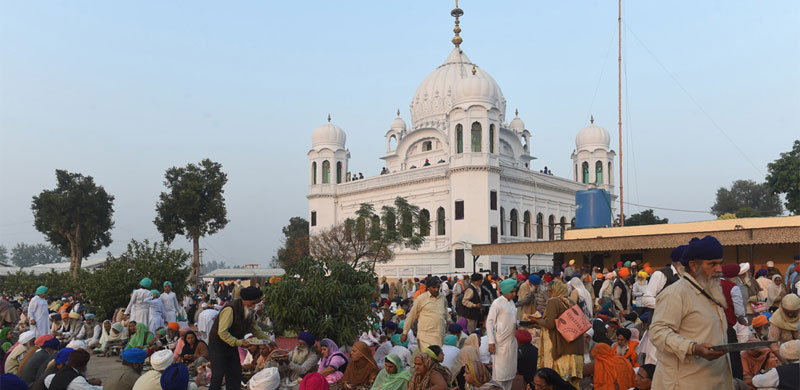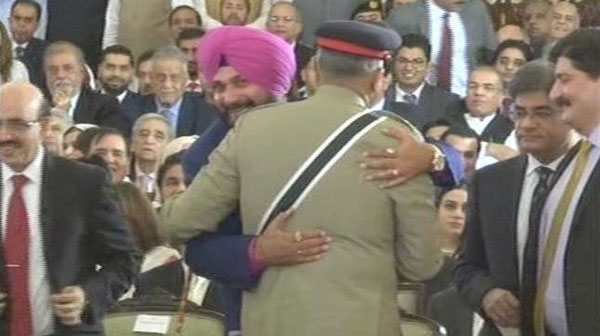
As a Chinese proverb goes, "if you need and want to get what is made in other village, make road to it and you will get it at home”. This highlights the vital importance of connectivity and integration. Here, village can be taken as a country in the parlance of modern state related concepts.
The history of the Indus Valley civilization is as old as the highly contested history of man itself. Historically, the region of the current divided subcontinent was once considered home to multiplicity of religions and a place of ethnic diversity.
In the wake of colonial, historical and commercial developments, the region's social and demographic fabric had been torn apart. The creation of new states on the basis of nationalism and religion led to division along ethnic and religious lines in the region. This resulted in separation of peaceful and connected communities with commonalities and similarities.
The emergence of new leadership in the wake of 2018 general elections in Pakistan has paved the way for a hope of cordial relations with neighbours and people-friendly policies at home.
As Shakespeare says, "Cowards die many times before their deaths; the valiant never taste of death but once". The brave and strong PM of Pakistan, Imran Khan, has showed immense courage by opening the corridor of love and peace with the arch rival India in the shape of Kartarpur Border for reconnecting the beleaguered and dislocated Sikh community culturally and religiously across the Indo-Pak border.

As it was proposed by the Sikh community for visa free entry through Kartarpur to perform pilgrimage of the religious and holy shrine of Guru Nanak, located in Narowal district 4-kilometre away from Pak-India border, since long. The idea was first approved in 2001 in the Musharraf era.
Guru Nanak who died on 22nd September, 1539, was the founder of Sikh faith. Since the partition of the subcontinent into two parts, every year Sikhs travel to Pakistan facing many problems in visas and travelling related requirements. Coupled with this, they face financial issues and cannot pay visit due to legal constraints. As a result, a large number of people are deprived of performing religious rituals.
The Sikhs love Pakistan because of their religious remains and shrines here.They love Pakistan much like the Muslim community respect the Kingdom of Saudi Arabia due to the presence of the holiest places like Makkah and Medina.
The opening of this corridor was profusely praised by both local and global media, intellectual circles and political leaders. On part of Pakistan, the entire leadership and the nation was on the same page, but the Indian government's response was both undiplomatic and divisive.
Today's world is different from the past. It is soft power that could go a long way in winning without fighting. An American president rightly put it: "I have destroyed my enemies when I make them my friends". As a matter of fact, friendship is the only solution at hand to resolve and counterbalance the hatred and enmity between the two countries.

Similarly Richard M. Nixon says, "Those who hate you don't win unless you hate them, and then you destroy yourself." The deep hatred and ill feelings have caused much loss already.
I think the corridor will, in long run, help the cause of Kashmir in the United Nations and ultimate steps should be taken to capitalise on it. As it is the first step towards cultural celebration and bridging differences, much more is required to do.
Scepticism and confusion do arise in my mind when I think of the initiative whether it is country specific or will be extended to the other neighbouring countries too?
The political and military leadership must show the same generosity and goodwill gesture in relations with Afghanistan too. The shrines of Khan Abdul Ghafar Khan in Afghanistan and Rehman Baba in Pakistan are the cultural epitomes of the wider Pashtun community across the border. The state must declare certain areas as tourist spots along Pak-Afghan border and facilitate people to people contact and cultural exchange programmes. Likewise, Sindhi, Baloch and other communities have religious and cultural affiliations with Iran and Iraq. The government should serve them by providing security, transport system and official patronage.
As Pakistan is home to diverse minorities, they should be given full rights. The state must stand with them.
The history of the Indus Valley civilization is as old as the highly contested history of man itself. Historically, the region of the current divided subcontinent was once considered home to multiplicity of religions and a place of ethnic diversity.
In the wake of colonial, historical and commercial developments, the region's social and demographic fabric had been torn apart. The creation of new states on the basis of nationalism and religion led to division along ethnic and religious lines in the region. This resulted in separation of peaceful and connected communities with commonalities and similarities.
The emergence of new leadership in the wake of 2018 general elections in Pakistan has paved the way for a hope of cordial relations with neighbours and people-friendly policies at home.
As Shakespeare says, "Cowards die many times before their deaths; the valiant never taste of death but once". The brave and strong PM of Pakistan, Imran Khan, has showed immense courage by opening the corridor of love and peace with the arch rival India in the shape of Kartarpur Border for reconnecting the beleaguered and dislocated Sikh community culturally and religiously across the Indo-Pak border.

As it was proposed by the Sikh community for visa free entry through Kartarpur to perform pilgrimage of the religious and holy shrine of Guru Nanak, located in Narowal district 4-kilometre away from Pak-India border, since long. The idea was first approved in 2001 in the Musharraf era.
Guru Nanak who died on 22nd September, 1539, was the founder of Sikh faith. Since the partition of the subcontinent into two parts, every year Sikhs travel to Pakistan facing many problems in visas and travelling related requirements. Coupled with this, they face financial issues and cannot pay visit due to legal constraints. As a result, a large number of people are deprived of performing religious rituals.
The Sikhs love Pakistan because of their religious remains and shrines here.They love Pakistan much like the Muslim community respect the Kingdom of Saudi Arabia due to the presence of the holiest places like Makkah and Medina.
The opening of this corridor was profusely praised by both local and global media, intellectual circles and political leaders. On part of Pakistan, the entire leadership and the nation was on the same page, but the Indian government's response was both undiplomatic and divisive.
Today's world is different from the past. It is soft power that could go a long way in winning without fighting. An American president rightly put it: "I have destroyed my enemies when I make them my friends". As a matter of fact, friendship is the only solution at hand to resolve and counterbalance the hatred and enmity between the two countries.

Similarly Richard M. Nixon says, "Those who hate you don't win unless you hate them, and then you destroy yourself." The deep hatred and ill feelings have caused much loss already.
I think the corridor will, in long run, help the cause of Kashmir in the United Nations and ultimate steps should be taken to capitalise on it. As it is the first step towards cultural celebration and bridging differences, much more is required to do.
Scepticism and confusion do arise in my mind when I think of the initiative whether it is country specific or will be extended to the other neighbouring countries too?
The political and military leadership must show the same generosity and goodwill gesture in relations with Afghanistan too. The shrines of Khan Abdul Ghafar Khan in Afghanistan and Rehman Baba in Pakistan are the cultural epitomes of the wider Pashtun community across the border. The state must declare certain areas as tourist spots along Pak-Afghan border and facilitate people to people contact and cultural exchange programmes. Likewise, Sindhi, Baloch and other communities have religious and cultural affiliations with Iran and Iraq. The government should serve them by providing security, transport system and official patronage.
As Pakistan is home to diverse minorities, they should be given full rights. The state must stand with them.
